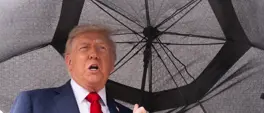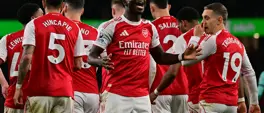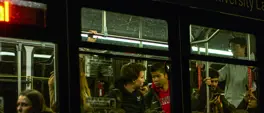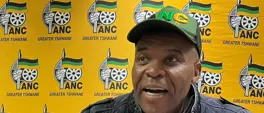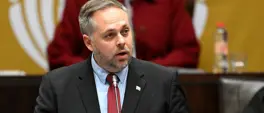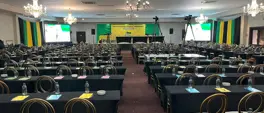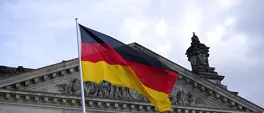Baffled by the US electoral process? We've got you covered.
Sara-Jayne Makwala King
2 November 2024 | 20:34Here's a breakdown of they key 'need to know' elements of the US election, including swing states, and the Electoral College
John Maytham, in for Lester Kiewit, is joined by Professor Daryl Glaser, Professor of Political Studies at Wits University.
Listen below
ALSO READ: Kamala Harris 'ate Trump's lunch' on presidential debate stage
The 2024 United States presidential election will be the 60th quadrennial presidential election, set to be held this coming Tuesday, 5 November.
The presidential hopefuls are current Vice President Kamala Harris and former President Donald Trump.
But how is it that Kamala Harris could receive more votes from individual Americans than Donald Trump, and still lose out to the billionaire businessman for the Commander in Cheif position?
It all rests, explains Glaser, on something called the Electoral College.
"When the Americans devised their constitution in 1787, they didn't trust the public to directly elect the President...so in fact, the Americans don't directly elect the President, the President is directed by something called the Electoral College which sits every 4 years."
Professor Daryl Glaser, Professor of Political Studies - Wits University
"Basically, 50 states conduct separate elections to choose delegates to go to the electoral college...the states send delegates, roughly in proportion to their numbers, but the biggest problem is, it's on a winner takes all basis."
Professor Daryl Glaser, Professor of Political Studies - Wits University
In essence the Electoral College is a system designed to balance representation between states.
Each state, is allocated a certain number of electors and the number of elections per state corresponds to its representation in Congress.
To win the presidency, Trump or Harris will need to secure a majority in the Electoral College, meaning at least 270 out of the 538 votes.
"So if you get a narrow durality or relative majority of the votes in one state, all the delegates from that state to the electoral college go to the winning candidate and this potentially causes a huge distortion nationally..the relationship between the popular vote and the delegate vote."
Professor Daryl Glaser, Professor of Political Studies - Wits University
ALSO READ: US VP presidential debate: A cordial clash, but who came out on top?
Get the whole picture 💡
Take a look at the topic timeline for all related articles.

